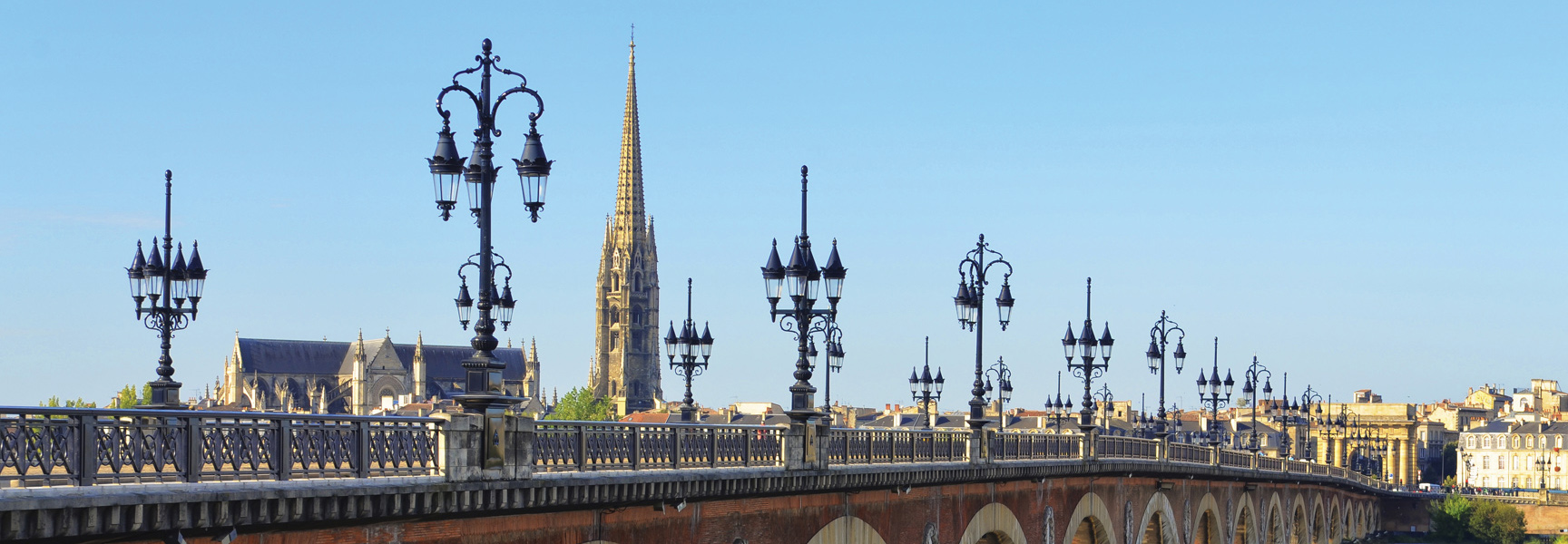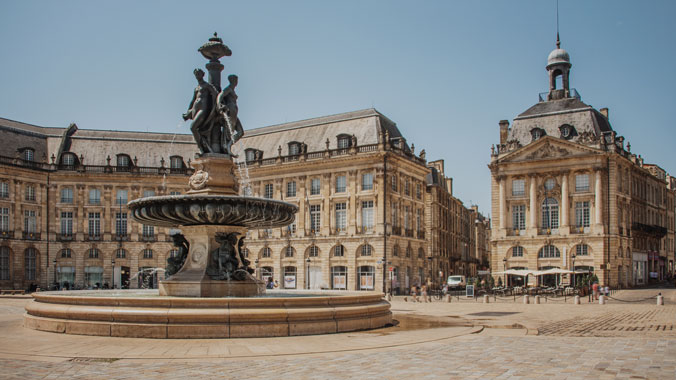
Online Program
Adventures Online: Southwest France, From Bordeaux to Perigord
Program No. 24319RJ
See More Photos
Itinerary
While we make every effort to ensure the accuracy of our published materials, programs are typically advertised more than a year prior to their start date.
Day
1
Welcome, Orientation, Aliénor d’Aquitaine, Bordeaux, Wine
Location:
From the comfort of your own home.
Orientation
Orientation and Introductions
As we meet our staff, we will have a brief overview on how to use Zoom, the program’s topic, guidelines, and the daily schedule.
Session 1
Aliénor d’Aquitaine
(Lecture)
Aliénor d’Aquitaine (1122-1204) — who we know as Eleanor — was Duchess of Aquitaine, Queen of France, and Queen of England. We will learn about her life as the most powerful woman in 12th century Europe, a patron of the arts and courtly love, a warrior, diplomat, and much more. When she died at Fontevrault, the nuns of the abbey wrote: “She was beautiful and just, imposing and modest, humble and elegant…who surpassed almost all the queens of the world.”
Break
Break
Take some time to stretch, relax, and prepare for our next lesson.
Session 2
Bordeaux Field Trip
(Field Trip)
We will “explore” Bordeaux and some of its highlights including the Musée d’Aquitaine and the Cité du Vin that opened in 2016 with its extraordinary architecture and exhibitions exploring the many and varied facets of wine across time and space. We will also explore the Bay of Arcachon.
Break
Break
Take some time to stretch, relax, and prepare for our next lesson.
Session 3
St. Emilion and Médoc Field Trip
(Field Trip)
We’ll “visit” Saint-Émilion, a medieval city and UNESCO World Heritage Site in the heart of wine country; the Eglise Monolithe, a unique church carved underground over centuries; and the Médoc region, highlighted by a wine chateau where we will learn about wine production and how the terroir affects the way wines taste.
Q&A
We will have time for questions with program staff.
Wrap-up
Daily Wrap-up
We will end with a review of the topics we have discussed today and a preview of what’s ahead for tomorrow.
End of Day
Today's session will end.
Day
2
Périgord & Prehistoric Art, Rouffignac, Dordogne, Sarlat
Location:
From the comfort of your own home.
Session 1
Welcome
Greet everyone and review the day's schedule.
History and Culture of the Périgord
(Lecture)
France comprises a dozen historic regions and within each region are smaller “départements.” We will learn about the history and culture of the Périgord in the Dordogne Valley, inhabited by Gallic tribes long before the Romans. The Périgord abounds in beautiful landscapes, stunning chateaux, medieval villages, and great wines. It is also where art in prehistoric caves attest to human creativity since at least 10,000 BCE.
Break
Break
Take some time to stretch, relax, and prepare for our next lesson.
Session 2
Step Back into The Paleolithic Period
(Field Trip)
We will “explore” the Cave of Rouffignac — known as the Cave of a Hundred Mammoth, have a visit to Peche Merle, and then be off see the replica of the world-renowned prehistoric cave, Lascaux IV.
Break
Break
Take some time to stretch, relax, and prepare for our next lesson.
Session 3
Erignac Gardens and Sarlat Field Trip
(Field Trip)
We’ll “visit” Les Jardins (Gardens) d’Erignac and the charming medieval town of Sarlat developed during the Carolingian era and today is renowned for its local market and products such as foie gras, truffles, nuts, and many other local specialties.
Q&A
We will have time for questions with program staff.
Wrap-up
Daily Wrap-up
We will end with a review of the topics we have discussed today and a preview of what’s ahead for tomorrow.
End of Day
Today's session will end.
Day
3
Occitanie, Gouffre du Padirac, Rocamadour, Albi, Carcassonne
Location:
From the comfort of your own home.
Session 1
Welcome
Greet everyone and review the day's schedule.
The Cathars
(Lecture)
The modern region of Occitanie encompasses two former regions: Languedoc-Roussillon and Midi-Pyrénées. While it dates administratively from 2016, it is in fact one of the oldest and most historic places in France. It proved to be fertile ground for the popularity of the Cathars, who were declared “heretics” by the Church of Rome.
Break
Break
Take some time to stretch, relax, and prepare for our next lesson.
Session 2
Rocamadour Field Trip
(Field Trip)
We will “visit” Rocamadour, a medieval hilltop village, one of the most important pilgrimage sites of its time. As well as Carcassonne which is famed for its towering stone walls and turreted towers, the most picturesque of all France’s medieval towns.
Break
Break
Take some time to stretch, relax, and prepare for our next lesson.
Session 3
Occitanie Field Trip
(Field Trip)
We will “explore” Albi and its cathedral, designated by UNESCO as a World Heritage Site; and the Musée Toulouse-Lautrec with the world’s largest collection of works by the artist from Albi. We will also “travel” to Toulouse to see some of its highlights. Toulouse, the fourth largest city in France, was founded by the Romans and is now the capital city of Occitanie. It is a place of great art, architecture, and numerous cultural attractions.
Q&A
We will have time for questions with program staff.
Wrap-up
Program Wrap-up
We will recap what we’ve learned over the past few days and say farewell. This concludes our program. We hope you enjoy Road Scholar learning adventures and look forward to having you on rewarding programs in the future. Don’t forget to like our Facebook page and follow us on Instagram. Best wishes for all your journeys!
Program Conclusion
This concludes our program.


